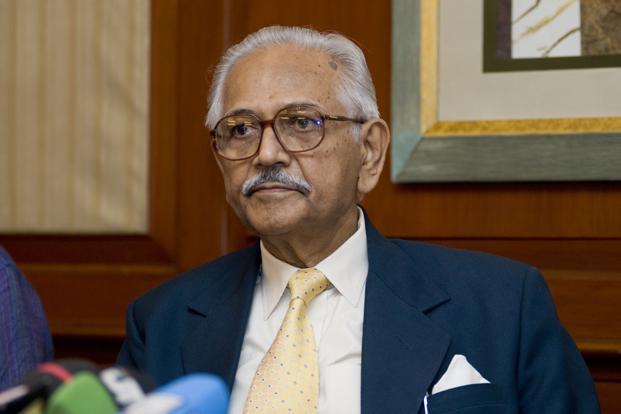Firm believer in judicial accountability and probity
Jagdish Sharan Verma was one of those rare judges of the Supreme Court who stood for professional ethics and certain values in public life. Although public memory is sure to associate him with the recent

V. VENKATESAN APril 23, 2013
Jagdish Sharan Verma was one of those rare judges of the Supreme Court who stood for professional ethics and certain values in public life.
Jagdish Sharan Verma was one of those rare judges of the Supreme Court who stood for professional ethics and certain values in public life. Although public memory is sure to associate him with the recent anti-rape panel which produced a landmark report recommending far-reaching changes in our penal law, he had left an indelible ink on many other causes as well.
Hailing from a non-advocate family, Verma was just 22 when he enrolled as a pleader at the Vindhya Pradesh judicial commissioner’s court at Rewa in January 1955. He then enrolled as an advocate of the Madhya Pradesh High Court on August 19, 1959, and practised at the district courts in his hometown of Satna. In 1967, he shifted to Jabalpur, where he practised at the Madhya Pradesh High Court.
He became the Additional Judge of the M.P. High Court at a very young age of 39 in 1972. He was one of the first Judges to order the release of Maintenance of Internal Security Act detainees during the Emergency.
Justice Verma became the acting Chief Justice of the Madhya Pradesh High Court in October 1985, and became its permanent Chief Justice in June 1986. He later served three years as Chief Justice in the Rajasthan High Court. At 56, he joined the Supreme Court as a Judge in June 1989. He was the 27th Chief Justice of India from March 25, 1997 to January 18, 1998.
Justice Verma headed the Commission of Inquiry set up to determine the nature of the security lapses that led to Rajiv Gandhi’s assassination in 1991. He concluded that the Intelligence Bureau had information of a possible assassination attempt, but failed to share it with the Tamil Nadu police. The Verma Commission report was submitted in June 1992.
He also monitored the Jain hawala case, which rattled the entire political class in mid-1990s. The collapse of the case at the trial court as the CBI failed to corroborate the diary entries which pointed to bribery of prominent persons in public life left him disappointed.
He served as the Chairman of the National Human Rights Commission between 1999 and 2003. In this capacity, he probed the Gujarat carnage of 2002, following the Godhra tragedy, and found the Gujarat government complicit in it.
Justice Verma was a firm believer in right to information, judicial accountability and judicial probity. Although he was the author of the Advocates-on-record judgment in 1993, which resulted in giving undue primacy to the Supreme Court’s collegiums in the appointment of Judges to the higher judiciary, he regretted later in an interview to this author that it was mostly misunderstood. What he envisaged was not primacy to the judiciary in the appointment process, but an effective consultation between the executive and the judiciary, he would say.
Justice Verma will also be remembered for his pioneering judgment in the Visakha case, which resulted in a series of guidelines to prevent sexual harassment of women at workplace, to be mandatorily followed till Parliament enacted a law. That Parliament is yet to enact such a law to fill legislative vacuum is a tribute to the timely judicial intervention, crafted by Justice Verma.
Justice Verma is also known for his active role, when he was the CJI, in the enunciation of Restatement of Values of Judicial Life, a set of principles or guidelines, to informally govern the conduct of judges of higher judiciary. He was also a great votary of declaration of assets by judges.
The jurisprudence of Justice Verma is under attack by his critics for imagining a role for the judiciary which was perhaps not envisaged by our founders, and which it cannot possibly perform. But his answer during his lifetime was that judicial activism, in the context of executive and legislative inaction, was justified.

